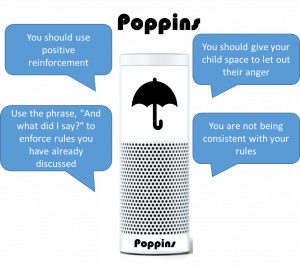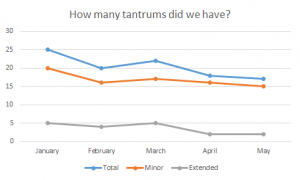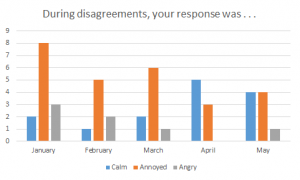There’s nothing more important to people in this world than their children. Estimates place the total cost of raising a child at ~$200,000, and the government expects the wealthiest Americans to spend $2,850 on childcare and education in just the first two years of a baby’s life. Books about parenting advice generate millions of dollars in sales annually. More recently, the industry has spawned numerous online personalities, peer-to-peer advice sharing forums, and applications to help parents answer some of their most anxious questions. But, in this digital age, we should expect more. How do we empower parents, in real-time, to make the right choices? How do we give them the information they need on a case-by-case basis to ensure that they’re raising children to grow up to be well-adjusted, productive members of our society? Even further, how do we limit the many frustrations and anxieties that stem from miscommunication between a parent and a child? Studies have shown that childhood experiences can have dominating effects on outcomes throughout a person’s life. Parents around the country are looking for a modern, digital solution that can help them raise their kids well and more effectively navigate everyday parenting challenges.
Introducing Poppins, an intelligent parenting assistant that helps parents determine the best course of action when encountering problems with their children. Poppins provides voice interaction, real-time situation guidance, and post conversation analysis and recommendations for parents.
Poppins detects keywords, phases, tonality, and emotions from each interaction. After collecting the raw vocal data, it is then run against an emotional voice database and parenting guidance data to properly identify and classify the emotional state of the parent and child, cause of disagreement, and then identify the appropriate action. Post-interaction, parents can get a better understanding of what happened through the statistics Poppins provides. Poppins tracks their parenting progress and advises what behaviors they need to improve on or what parenting tactics they should make in the future, providing an unbiased picture of their parenting successes and failures. In order to activate Poppins listening mode, simple state “Poppins”. Parents can then ask Poppins for guidance or just have Poppins listen in to provide help when necessary or to monitor their progress. For our initial pilot, interaction and communication with Poppins will only be available in English.
To prove it works, Poppins will be placed in the homes of 30 volunteers across various incomes and child ages. For the first three months, the device will gather data on the number of tantrums and the parental techniques used. For the next 6 months, Poppins will give feedback to parents based on the prior months, and track tantrums over time. We will also compare the results of the experiment set against a control set of 30 parents not using Poppins (but with the device still tracking tantrums). The control set will utilize parental books, blogs, and a British nanny. We will be able to measure the impact of Poppins on tantrums over time, the impact of using vs. not using the device, what type of parental situation the device is most effective for, and how it compares to a spoonful of sugar. Through a long term pilot, we could even track the future earnings of these children, and quantify the long term impact of Poppins on raising happy, healthy, successful children.
Once we’ve proven that Poppins gets results, we’ll run a viral marketing campaign to spread the word to the parenting community. We’re partnering with popular parenting bloggers including First Time Mom and Dad, 8Bit Dad, and Scary Mommy. We’ve given the technology to these influencers to test it out for themselves for a 6 month trial, and asked them to write posts honestly describing their experiences using the tool. We want them to talk about how they reacted to the assistant, what surprised them from their statistics, what might have made them uncomfortable at first, and most importantly how their relationship with their child evolved throughout the 6 months. We think that this kind of account – a very human telling of how real moms and dads used the AI software alongside their intuition to make them stronger parents – will help convince thousands of families that this is worth trying with their own child.
By: Team CodeBusters
References:
Paul, Pamela. Parenting, Inc.: How the billion dollar baby business has changed the way we raise our children. New York: Times /Henry Holt, 2008.




8|